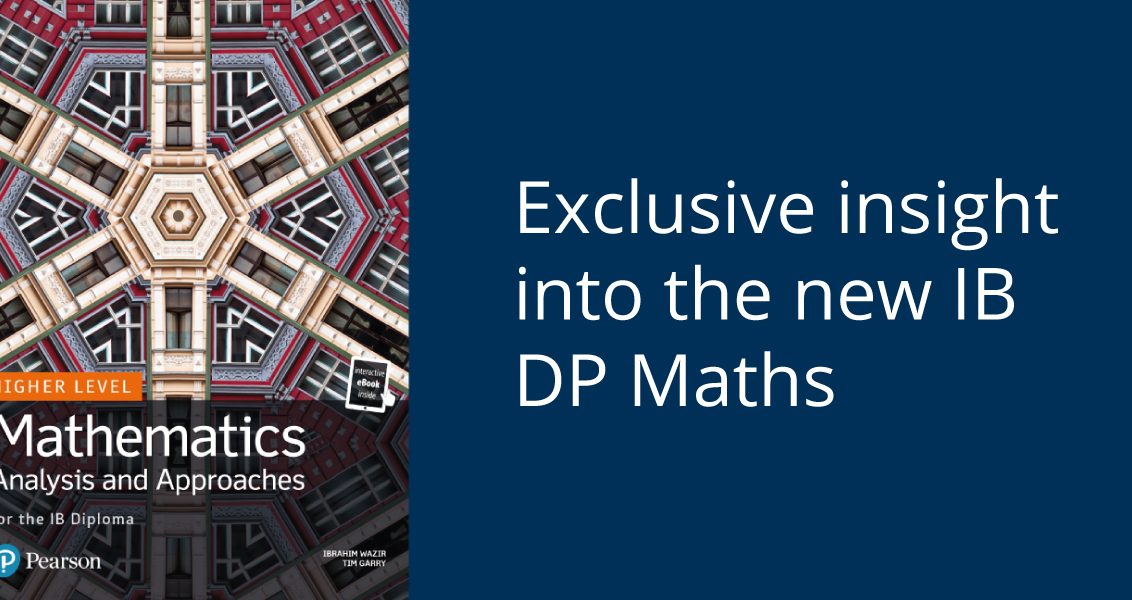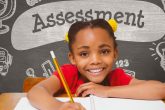
Big changes are coming for IB DP Maths, with first teaching of the new course starting in September 2019 and first assessment taking place in May 2021.
So what’s new?
The new courses will benefit from an improved philosophy – more emphasis is being given to approaches to learning and teaching, and this is reflected in the design of the new syllabus.
Approaches to learning will focus on developing thinking, social, communication, self-management and research skills, whereas approaches to teaching will be inquiry-based, conceptually-focused, contextualised, collaborative, differentiated, and informed by assessment.
Two new routes will be available at both SL or HL: Analysis and Approaches or Applications and Interpretation. You can now download sample units from Pearson’s Higher Level resources.
Analysis and Approaches
The new Analysis and Approaches course reflects the emphasis on algebraic, graphical and numerical approaches. Much of this course represents an updated version of the existing syllabus.
This course is for students that enjoy developing their mathematics to become fluent in the construction of mathematical arguments and develop strong skills in mathematical thinking. Students taking this course will explore real and abstract applications of Maths, with and without the use of technology. This course is intended for students who will go on to study subjects with substantial Maths content at university (eg. Maths, Engineering, Economics, Physical Sciences).
Applications and Interpretation
The new Applications and Interpretation course emphasises the applied nature of Maths and the interpretation of results in context. Much of this course is relatively new.
This course is for students who are interested in developing their mathematics for describing our world and solving practical problems. These students will harness the power of technology alongside exploring mathematical models. Unlike the Analysis and Approaches course, which only allows the use of technology, Applications and Interpretation makes extensive use of it. This course is aimed at students who are likely to go into Social Sciences, Natural Sciences etc.
What about Studies?
We know one concern that teachers have is what course students that would previously have taken Studies should choose. Ibrahim recommends that those students should take the Applications and Interpretation SL course.
SL vs HL
To bring DP Maths in line with other DP subjects and to allow schools more flexibility, SL content will be a complete subset of the HL content for that course. All students will complete 120 hours of SL content and 30 hours of investigation, inquiry and problem solving (to include the Internal Assessment). HL students will also complete a further 90 hours of additional content. Furthermore, there will be 60 hours of common SL content across all four options, although Ibrahim warns against combining classes to teach the core content. Analysis and Approaches SL and HL students can be taught together in the first year, however, Applications and Interpretations SL and HL students should not be combined.
Changes to assessment objectives
Two new aims are being added to the course:
-
Develop the ability to reflect critically on their own work and the work of others.
-
Independently and collaboratively extend their understanding of Maths.
The assessment objectives are also undergoing some minor changes:
-
Objective 3 (communication and interpretation) will include the addition of the phrase ‘use appropriate notation and terminology’ to accommodate the changes due to increasing use of technology.
-
Objective 6 will be re-named as inquiry approaches for all routes.
External assessment
SL and HL students will take two written exam papers consisting of short and longer answers. Paper 1 will be without the use of technology; Paper 2 will use a graphic calculator.
HL students will take an extra Paper 3, which will be a 1 hour problem solving paper, possibly requiring the use of spreadsheets and graphing software.
The Internal Assessment will be based on the current model.
For more information or to sign up to receive news and sample chapters for Pearson’s new Mathematics for the IB Diploma textbooks, due to publish in Spring/Summer 2019, please contact internationalschools@pearson.com.
About the authors
Ibrahim Wazir taught Maths at Vienna International School, the American International School, Vienna, and at Webster University, Vienna. He has been an IB Maths Assistant Examiner, Chief Examiner and a member of the Curriculum Committee. He has also run IB workshops for new and experienced teachers.
Catherine Barber is the Commissioning Editor for International Baccalaureate resources at Pearson Education.

